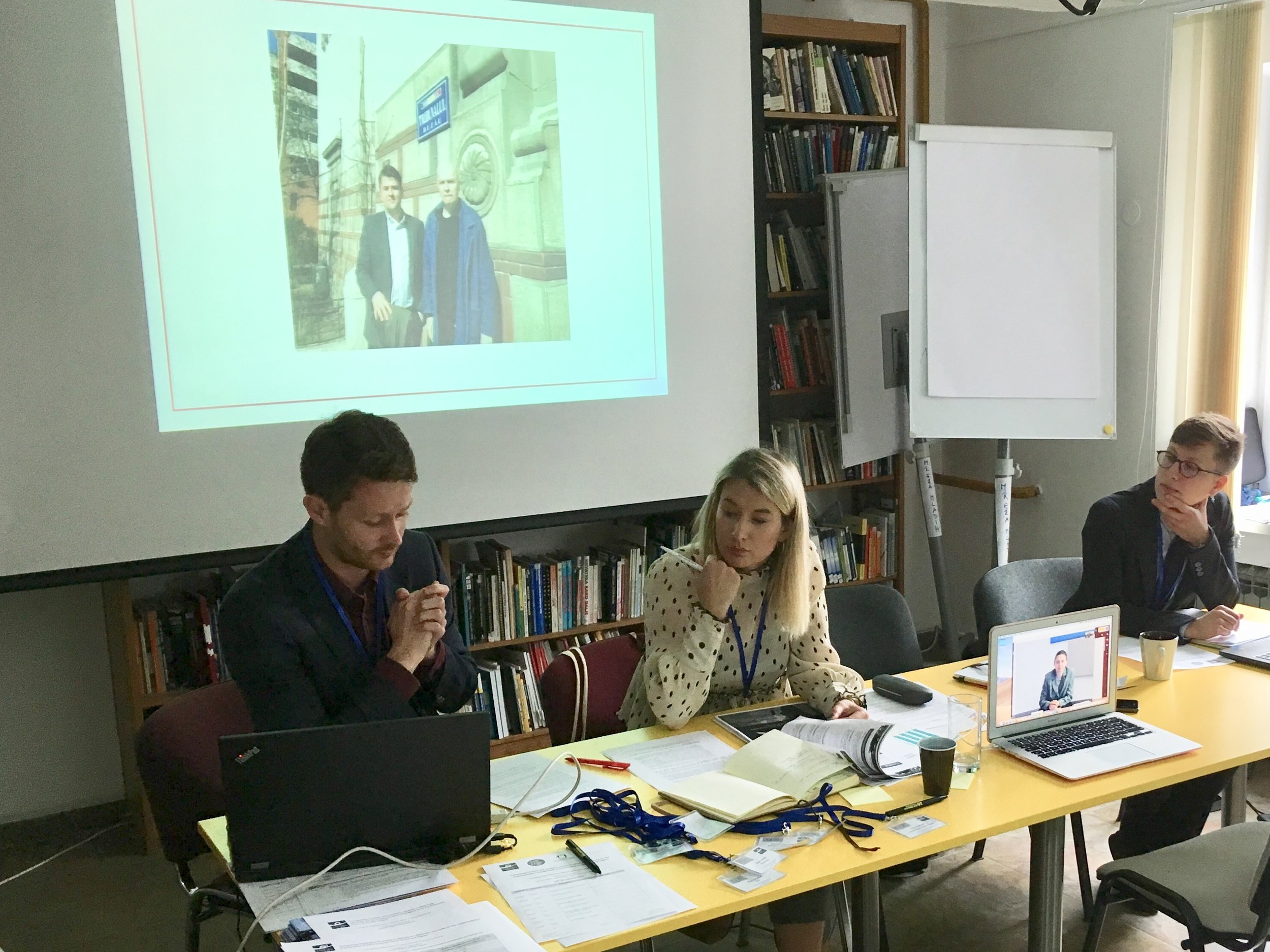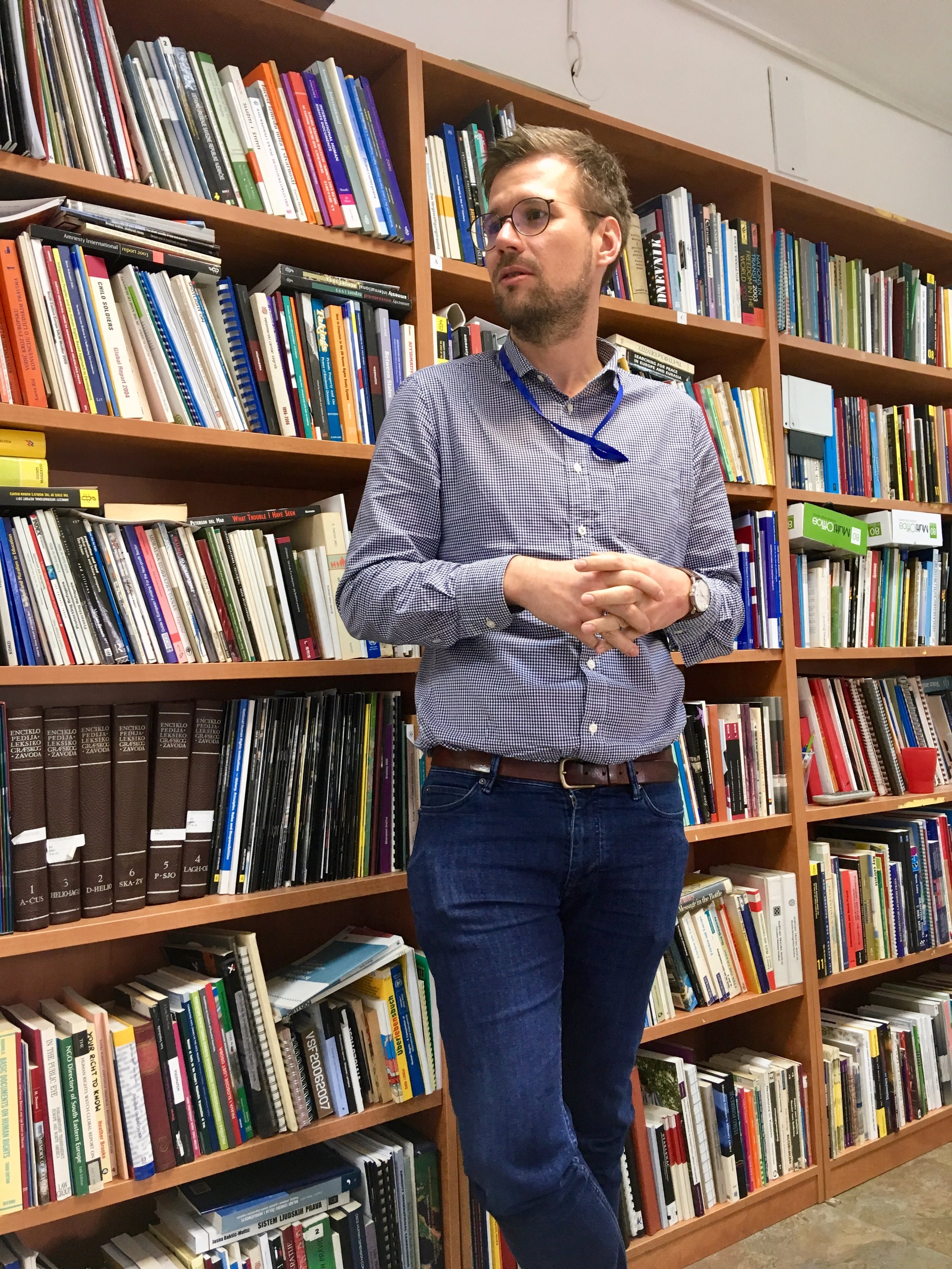Enhancing Croatian civil society's capacity to advocate for the implementation of ECtHR judgments
/Training workshop helps establish EIN’s member as an ‘implementation hub’ in Croatia
This week saw the grand finale of a capacity-building marathon for the European Implementation Network (EIN), which has organised three training sessions in less than three months. After our successful events with Fair Trials in March, and with İHOP and the ICJ in April, EIN organised a one-day training workshop in Zagreb on 21 May with and for its Croatian member organisation, Human Rights House Zagreb.
The training workshop brought together 18 participants and two external observers with the three-fold aim of (i) Introducing the participants to the Committee of Ministers’ (CM) ‘judgment execution process’, i.e. its supervision of the implementation of judgments handed down by the European Court of Human Rights (ECtHR) in respect of Croatia, and ways for civil society to engage with it; (ii) identifying priority areas for civil society advocacy for full and effective judgment implementation in Croatia, using both domestic and Strasbourg avenues; and (iii) mapping opportunities for establishing implementation coalitions around specific cases pending execution.
© Council of Europe, Department for the Execution of Judgments of the European Court of Human Rights
Indeed, such opportunities are manifold, and greater civil society engagement in advocacy for implementation of judgments is urgently needed. Croatia’s implementation record leaves little room for complacency. At present, the overall number of Croatian cases which remain pending before the CM stands at 87 – 41 of which have been classified as ‘leading’ cases (compared, for example, to 17 leading cases against Georgia, which has roughly the same population as Croatia). ‘Leading’ cases indicate a wider problem requiring the adoption of general measures to avoid recurrence of the violation found by the Court. In other words: there are at least 41 human rights problems that the CM is examining in respect of Croatia. The cases pending before the CM span a wide range of ECHR violations and concern, inter alia, inhuman or degrading detention conditions (Cenbauer); Croatian citizens being subjected to unlawful surveillance (Dragojević); and failure to reunite parents with their children under the Hague Convention on the Civil Aspects of International Child Abduction (Karadžić). In a number of these cases, the Croatian Government has not put forward an ‘Action Plan’, i.e. a plan detailing the measures envisaged to give effect to a ruling from the Strasbourg Court, in many years. If and when this happens, judgments become ‘orphaned’, and they do not lead to justice for the victims. Civil society can play a crucial role in identifying these ‘dormant’ cases and injecting new impetus into the implementation process. This is the role that EIN’s colleagues from the Human Rights House Zagreb have committed to assume. Their team will lead a more concerted effort by Croatian NGOs and other key allies – journalists’ associations and other media actors, national human rights institutions (NHRIs), lawyers and campaigners – to advance the implementation of important human rights judgments. This week’s training workshop was intended to strengthen their capacity to do so.
We kicked off the day with a panel discussion on the state of implementation in Croatia. Katarina Nedeljkovic from the Department for the Execution of Judgments of the European Court of Human Rights (DEJ) at the Council of Europe presented an insider’s view from Strasbourg, which was complemented by a civil society perspective presented by Tea Dabić from Human Rights House Zagreb.
EIN Co-Director George Stafford highlighted three key benefits of using the CM judgment execution process for one’s advocacy: first, the process is a way to set the agenda for reforms; secondly, setting these reforms in motion; and, thirdly, preventing early ‘closure’ of the case, which would result in international supervision coming to an end before the reforms have proved to bring about the intended results. The message from all speakers was clear: the number of outstanding human rights issues in Croatia is unacceptably high, and a concerted effort is needed to tackle these issues.
An example of how this can be done was presented by EIN Treasurer Nigel Warner, whose presentation in Session 1 centred around effective advocacy activities carried out by the Romanian NGO ‘ACCEPT’ aimed at tackling hate crimes against LGBTI persons in a hostile political environment. ACCEPT has pushed for the implementation of the case of M.C. and A.C. v. Romania since 2016, when the ECtHR handed down its judgment finding that the Romanian authorities had failed to conduct an effective investigation and, in this context, to take into account possible homophobic motives of an attack on the applicants by private individuals which occurred after the applicants had left a police-protected LGBTI rally in 2006. One key factor for the positive impact of ACCEPT’s advocacy was that the NGO effectively combined submissions to the CM under Rule 9.2 of the Rules of the Committee of Ministers with domestic advocacy, including a meeting between the victims and the Minister of Justice. This practice is worth highlighting and replicating, as implementation ultimately happens on the ground, and the judgments from Strasbourg can be an important additional lever in pushing for change.
The second half of the day was dedicated to work in break-out groups, to facilitate identifying concrete steps to foster implementation in Croatia. In the first of two sessions, one group was introduced to all the intricacies relating to researching, drafting and keeping momentum after the communication of a Rule 9 submissions. In the other group, participants had a brainstorming and came up with a plan to take domestic advocacy for implementation to the next level. There was broad agreement that all NGO and NHRI actors had a responsibility to bring a Strasbourg dimension into the work in fora of which they form part, and that news stories could be generated about individual cases that are illustrative of the wider human rights problems stemming from non-implementation.
“The break-out group on [domestic] advocacy … was very concrete and dynamic [and we came up] with a great plan for future work.”
Anonymous feedback from a workshop participant
“[The group work on specific cases pending execution] was immensely useful as it showed the practical side and interaction of domestic actors [on the ground] and internationally. [The] hand on outcome was useful.”
Anonymous feedback from a workshop participant
The final session of the day saw participants work in small groups to discuss next steps in promoting the implementation of three cases pending execution: Skendžić and Krznarić v. Croatia, concerning the Croatian authorities’ failure to effectively investigate crimes committed during the Croatian Homeland War; Stojanović v. Croatia, a group of cases concerning freedom of expression, and specifically hate civil defamation proceedings; and Šečić v. Croatia, a case about failure to carry out an effective investigation into a racist attack on a person of Roma origin. These cases are at different stages of the implementation process, but they all need concrete follow-up, which the participants have committed to undertaking. EIN will continue to support its member, the Human Rights House Zagreb, and Croatian civil society more widely, in order to make tangible progress concerning the implementation of the numerous leading cases awaiting execution in Croatia.
EIN would like to extend a warm thank you to its colleagues from Human Rights House Zagreb – Tea Dabić, Ivan Novosel and Tina Đaković – for the fruitful cooperation in organising this event, and for their tireless engagement in pushing for the implementation of ECtHR judgments in Croatia.
Photos: EIN











